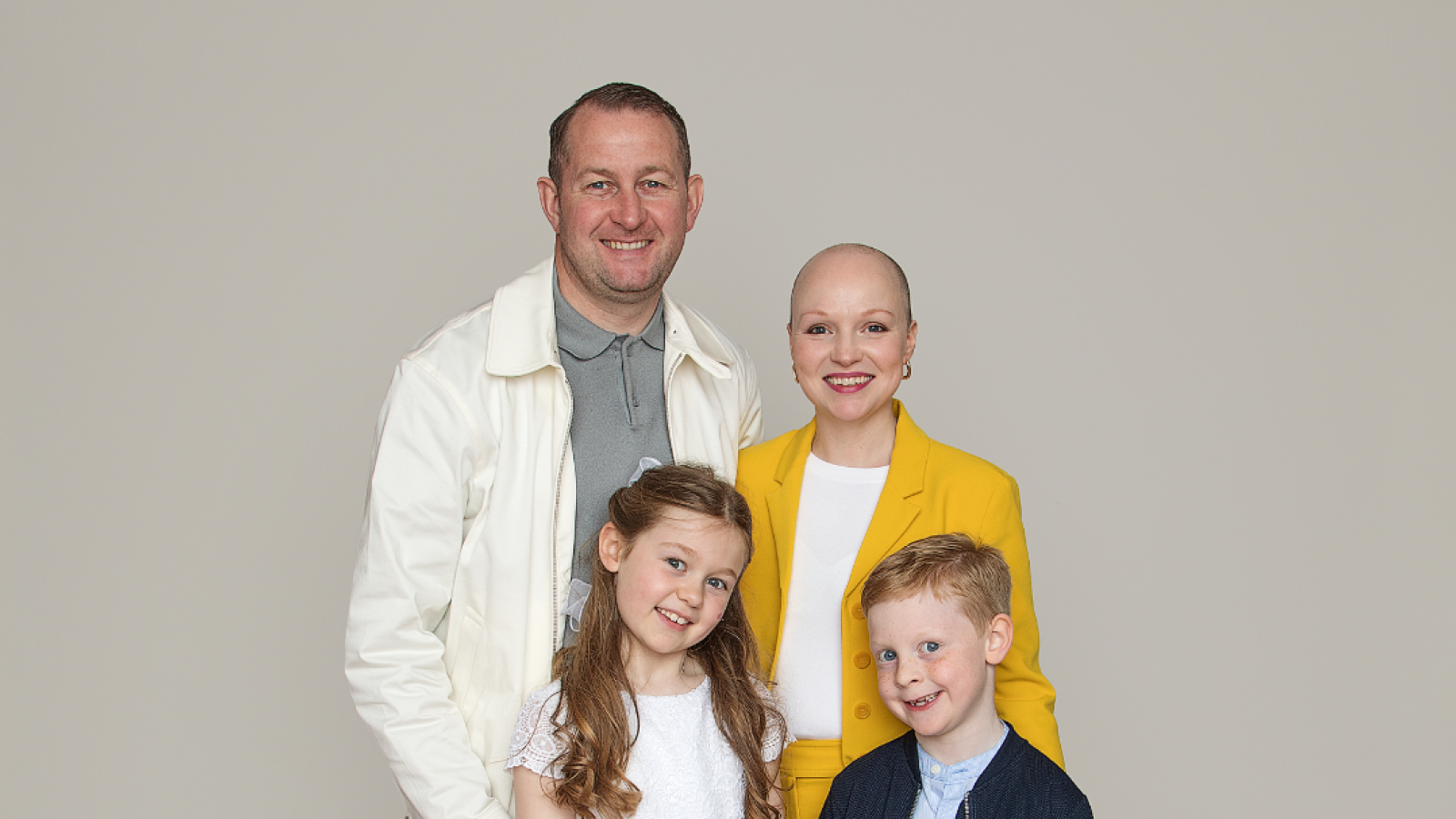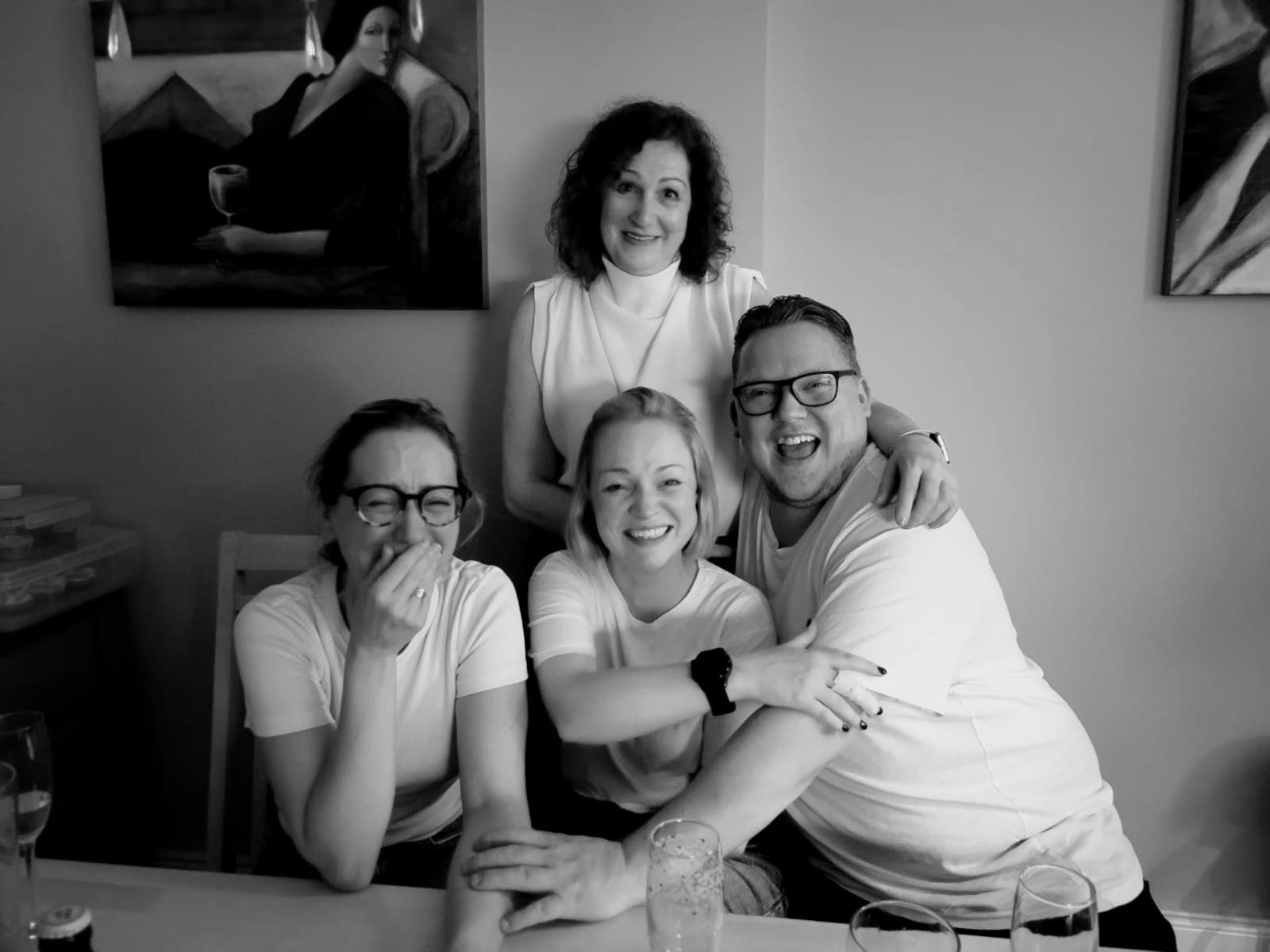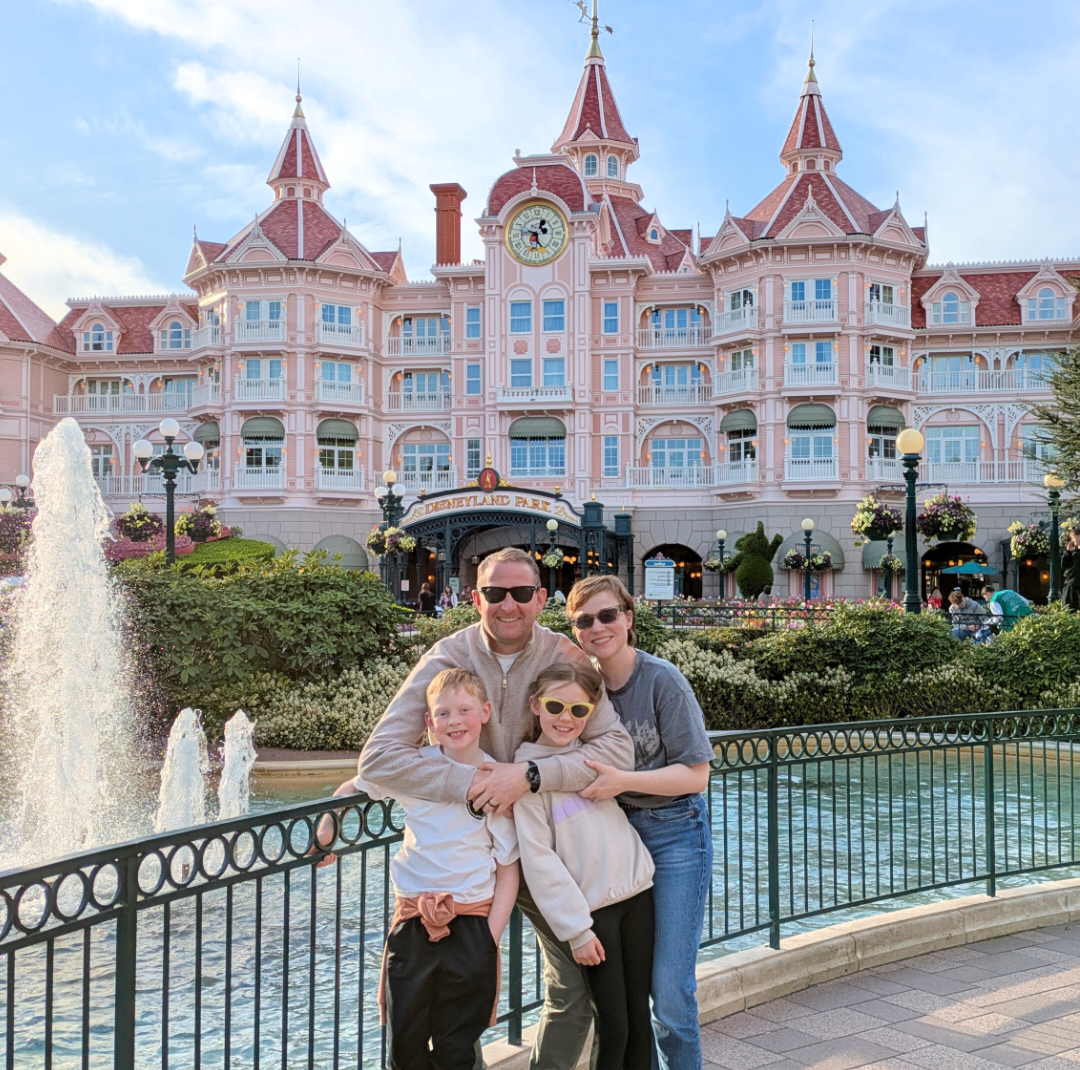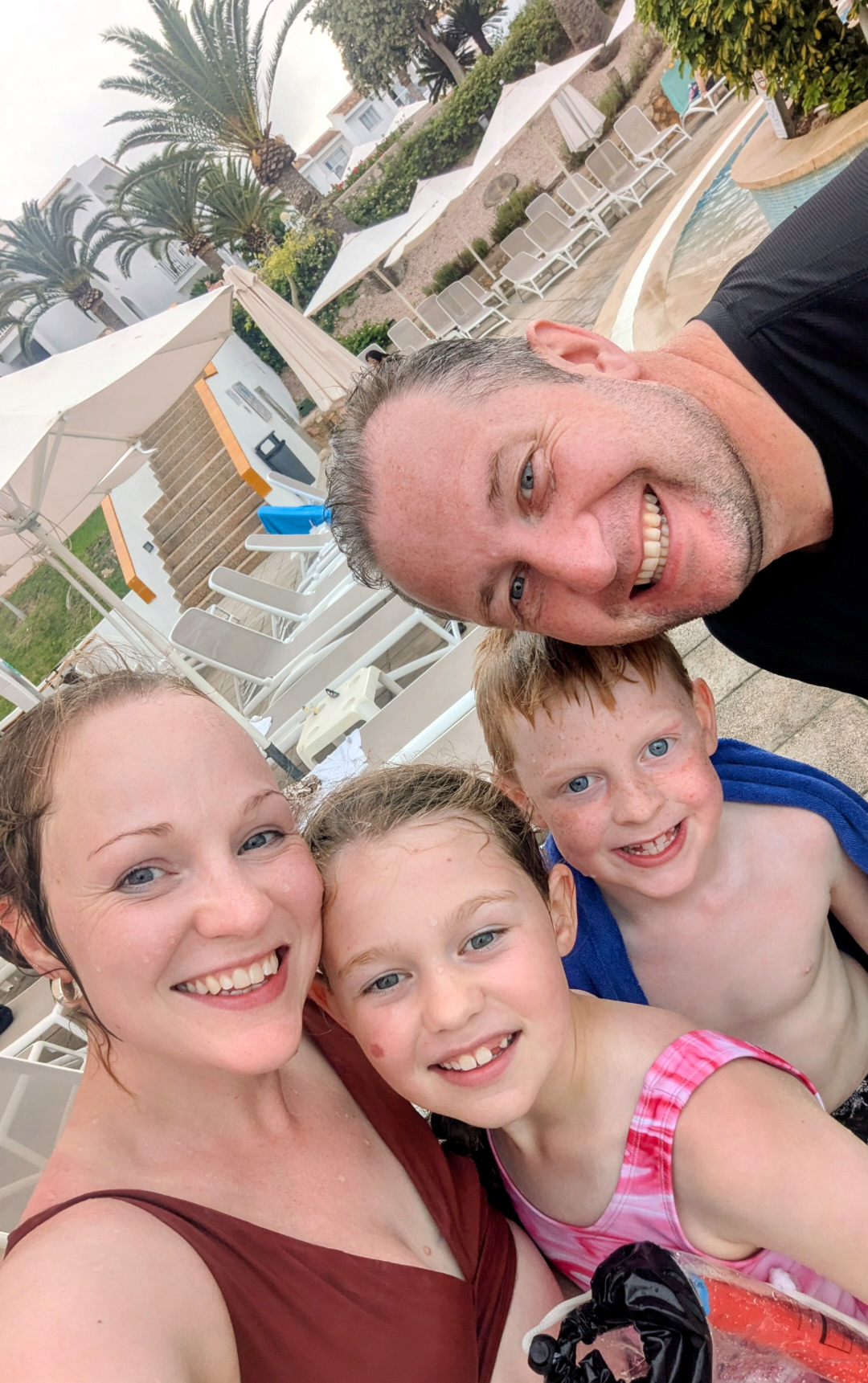Emma's Story
“I knew straight away it was something that needed to be looked at."

In August 2023, Emma Aspell, a mother of two originally from Monaghan, now living in Swords, Co. Dublin, noticed a protruding lump above her nipple.
“I knew straight away it was something that needed to be looked at. I went to my GP and within 10 days I was into my nearest breast clinic. During the physical examination a senior doctor came in with a number of students.
I will never forget him saying in front of those students that he thought I was being stupid. That my lump was just a fatty lump. I knew the lump wasn’t nothing. I was furious. Not just because it was upsetting to hear, but because of the example he was setting for his students.”
Following her physical examination, Emma was brought in for her mammogram and ultrasound. “The nurse looking after me was so kind and helpful. She wanted to slot me in for a biopsy but she had a full book of appointments that day. I only live ten minutes from the hospital, so I told her I’d go home and come back. She stayed on late that evening and fit me in. My full triple assessment all happened that one day.”
"My medical team strongly favoured ‘breast conserving surgery’ but for me, saving my breast was bottom of the list. Top of the list was getting rid of the cancer."

When the results came back, aged just 37, Emma was told she had triple negative breast cancer.
“I really didn’t know much about the different types of breast cancer. I remember the medical team telling me, ‘don’t go looking it up online’. But of course, I did.
It was quite overwhelming and while I researched far and wide, I found the Irish Cancer Society website the only place that was calm, clear, and reliable. I also learned that some breast cancer types are better funded in terms of research than others. Unfortunately, triple negative breast cancer is a particularly aggressive form of breast cancer and required us to move quickly with the treatment plan.”
Following further tests, Emma’s cancer had spread to some of her lymph nodes meaning she’d require a mastectomy. “Initially, my medical team advised I’d need a lumpectomy, but I wanted to go for a full mastectomy.
There was talk of me being young and my quality of life being impacted. My medical team strongly favoured ‘breast conserving surgery’ but for me, saving my breast was bottom of the list. Top of the list was getting rid of the cancer.
They explained to me the impacts and side effects of going for a mastectomy and that I may be ineligible for certain treatments down the line. In the end, that decision was taken out of my hands because the cancer had spread to my lymph nodes. We went for the mastectomy.”
We also had my wider family, friends and neighbours – my mum Gillian, my sister Leane flying back from Barcelona and my brother Keith to help. And Fran’s parents have been incredible too. I am deeply grateful for the love and support of so many people.”

Emma’s surgery took place in September 2023 and by November, she began a 20-week course of chemotherapy followed by radiotherapy in May 2024.
Emma says she wouldn’t have come through her cancer experience without the support of her husband and loved ones. “My husband Fran was just amazing. He took on so much and was there with me every step of the way. The burden your spouse takes on, especially when you have children, is just enormous.
Ellen is 10 and Chris is 8. I was determined to be as open and transparent with them as possible about my cancer. They are so resilient. We also had my wider family, friends and neighbours – my mum Gillian, my sister Leane flying back from Barcelona and my brother Keith to help. And Fran’s parents have been incredible too. I am deeply grateful for the love and support of so many people.”
As well as using the Irish Cancer Society’s website for trusted cancer information, Emma also engaged with our Welfare and Supports Team. “The cost of cancer and its financial impact can be very challenging.
We needed reliable information and guidance. The Welfare and Supports Team at the Irish Cancer Society helped me through the medical card application process, which was a huge help for us.”
Rather than expect women who have gone through breast cancer treatment to conform to perceptions of ‘normality’, we should respect the woman’s decision to do what is comfortable for her.”

In sharing her story, Emma is encouraging women to do what is comfortable for them when it comes to prosthetics, head scarves and wigs. “I understand that for many women, losing a breast to surgery and losing their hair during treatment can be hugely challenging.
For some women, this can all be connected to their sense of being a woman, their sense of femininity. I totally understand and respect that. But that wasn’t the case for me.
I remember after my mastectomy and when I was preparing to leave the hospital, the nurse insisted I wear a prosthetic bra to feel more “normal”. This really upset me because living with one boob is my normal. I didn’t and don’t want to wear prosthetics.
Similarly, I initially bought a number of head scarves. My logic was I’d wear them because for some people seeing a bald woman could be triggering of negative experiences. But this again was my normal. My hair was temporarily gone. I ended up wearing none of those scarves.
Rather than expect women who have gone through breast cancer treatment to conform to perceptions of ‘normality’, we should respect the woman’s decision to do what is comfortable for her.”
"Unfortunately, I received the news that my cancer had spread and metastasised to my lung. This has been devastating news to receive.”

One year after she finished her treatment, Emma was in for an annual scan. Her medical team spotted something that needed further investigation. “In April of this year, I had a surveillance scan and had to wait more than 7 weeks to hear back from the hospital on what they found. This delay was unbearable. I called every couple of days for an update.
By early June, I was told I needed a PET scan but that there was a significant backlog and wait list to access this publicly. Thankfully, I managed to get this scan privately sooner. Something showed up on my lung and I needed a further biopsy. This took place in July.
Unfortunately, I received the news that my cancer had spread and metastasised to my lung. This has been devastating news to receive.”
While waiting for her treatment to be put in place, Emma and her family went on holiday for ten days in September. “It was amazing to get away but I was straight into my new treatment within 24 hours of getting home. It has been incredibly stressful to navigate my new treatment pathway.
The staff are just so overstretched, it can be hard sometimes to get answers to basic questions and it sometimes feels like my medical team aren’t communicating with each other. There was confusion and last minute changes about whether I was starting radiotherapy or chemoimmunotherapy. In the end, I have been put on a course of chemoimmunotherapy and this goes in three-week cycles. Two weeks on and one week off.
There have been occasions when, because my white blood cell count is too low, they need to pull me out of treatment. When that has happened, because the hospital is so stretched, it can almost be a battle to get me a space back in a chemo chair. I feel sometimes like I am begging for treatment that is needed to keep me alive.”
A metastatic diagnosis isn’t the end. It’s going to be tough, but I have to believe that a bright and healthy future lies ahead.”

Emma says she is sharing her story because she wants to encourage women to check themselves for signs and symptoms of breast cancer. “I want women to be empowered to speak up and advocate for themselves.
Throughout my cancer experience, I have had incredible support from my family and friends and I can’t thank everyone enough. But I also feel I have had to take on the role of an advocate and to push for things. To have to deal with that on top of the stress of your cancer treatment is really difficult.
Even now, coming to terms with living with cancer for the rest of my life, it is exhausting to constantly have to push for things. Fully coming to terms with my new cancer reality will take time and for my family, that will be a slower process.
Going through my first breast cancer awareness month with a metastatic diagnosis has been an eye-opening experience. It is brilliant to see the awareness being raised, but for me this time, it has really hit home that breast cancer isn’t all pink and glitter.
I will continue to use my voice and work with other women living with metastatic breast cancer to call for more investment and support.
A metastatic diagnosis isn’t the end. It’s going to be tough, but I have to believe that a bright and healthy future lies ahead.”
